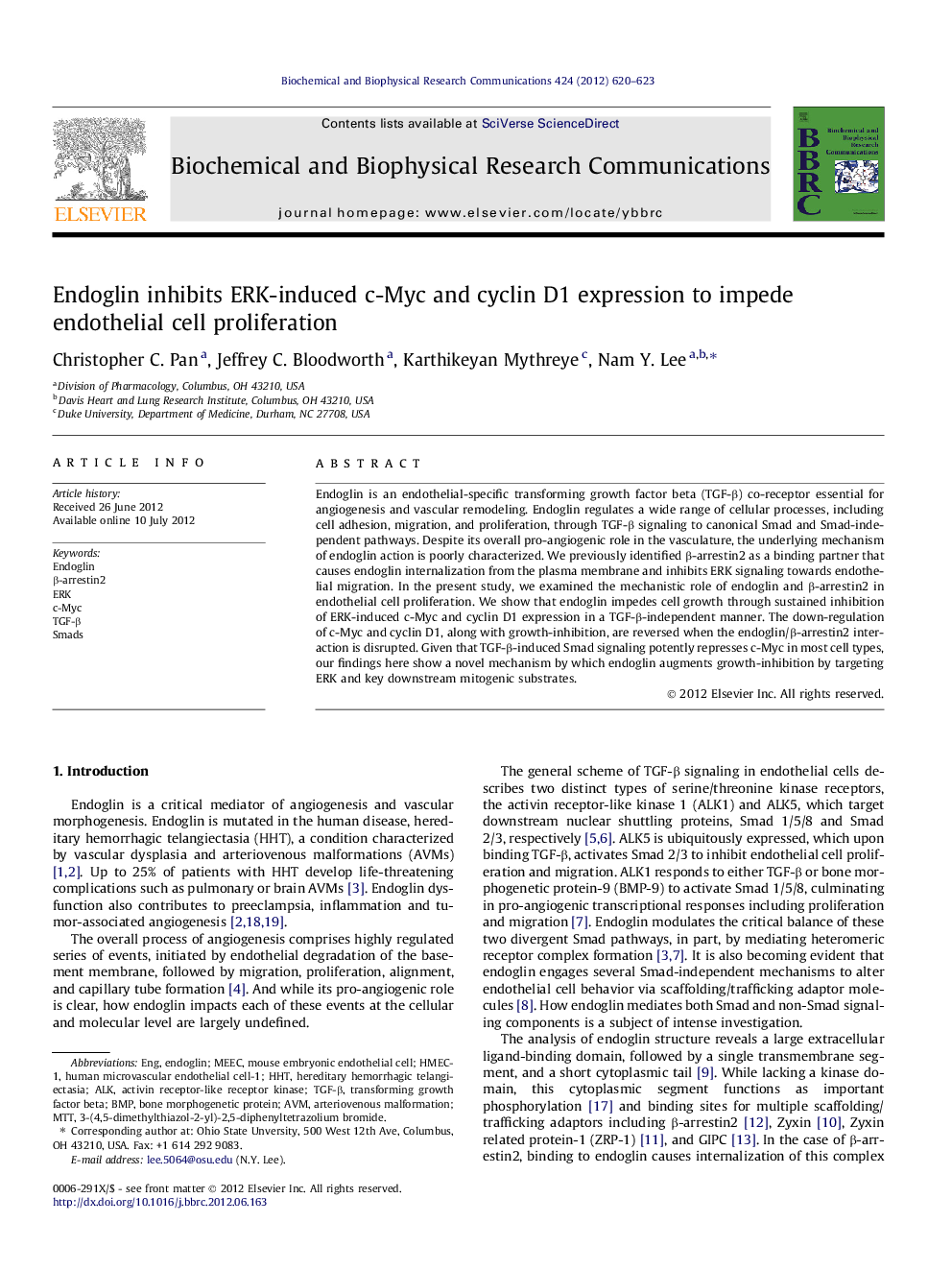| Article ID | Journal | Published Year | Pages | File Type |
|---|---|---|---|---|
| 1929348 | Biochemical and Biophysical Research Communications | 2012 | 4 Pages |
Endoglin is an endothelial-specific transforming growth factor beta (TGF-β) co-receptor essential for angiogenesis and vascular remodeling. Endoglin regulates a wide range of cellular processes, including cell adhesion, migration, and proliferation, through TGF-β signaling to canonical Smad and Smad-independent pathways. Despite its overall pro-angiogenic role in the vasculature, the underlying mechanism of endoglin action is poorly characterized. We previously identified β-arrestin2 as a binding partner that causes endoglin internalization from the plasma membrane and inhibits ERK signaling towards endothelial migration. In the present study, we examined the mechanistic role of endoglin and β-arrestin2 in endothelial cell proliferation. We show that endoglin impedes cell growth through sustained inhibition of ERK-induced c-Myc and cyclin D1 expression in a TGF-β-independent manner. The down-regulation of c-Myc and cyclin D1, along with growth-inhibition, are reversed when the endoglin/β-arrestin2 interaction is disrupted. Given that TGF-β-induced Smad signaling potently represses c-Myc in most cell types, our findings here show a novel mechanism by which endoglin augments growth-inhibition by targeting ERK and key downstream mitogenic substrates.
► Endoglin inhibits ERK activation in endothelial cells. ► Endoglin is a regulator of c-Myc and cyclin D1 expression. ► β-arrestin2 interaction with endoglin is required for ERK/c-Myc repression. ► Endoglin impedes cellular proliferation by targeting ERK-induced mitogenic signaling.
